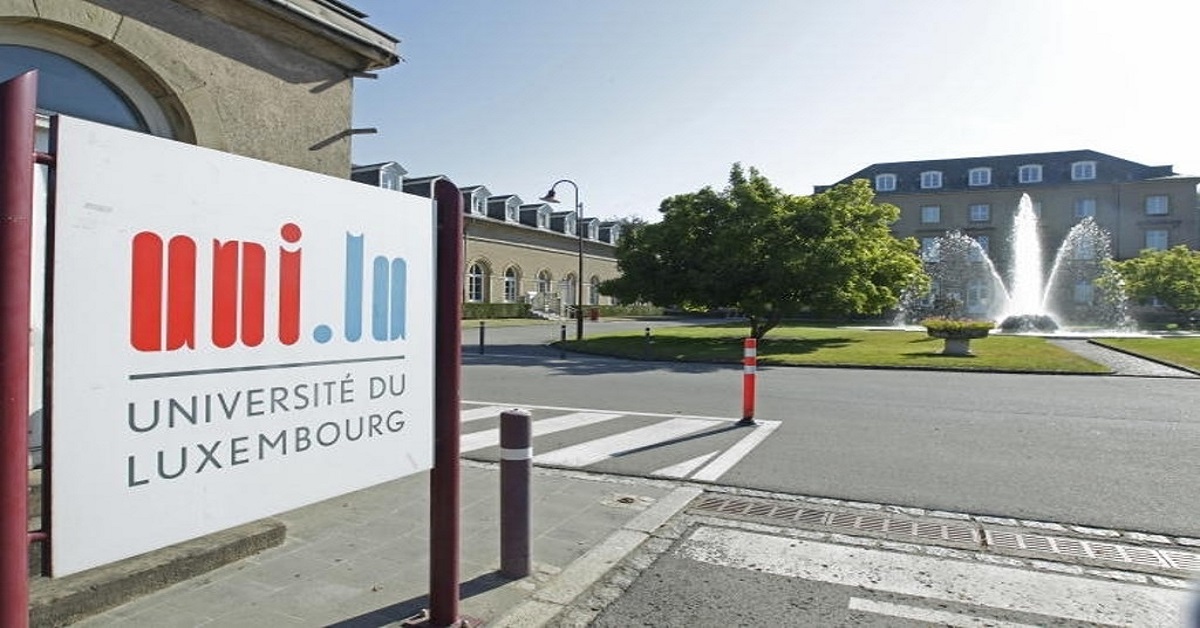
SnT is a leading international research and innovation centre in secure, reliable and trustworthy ICT systems and services. We play an instrumental role in Luxembourg by fueling innovation through research partnerships with industry, boosting R&D investments leading to economic growth, and attracting highly qualified talent.
We’re looking for people driven by excellence, excited about innovation, and looking to make a difference. If this sounds like you, you’ve come to the right place!
Your Role…
We offer an attractive Research Associate position in Computer Vision-based anomaly detection for Space Applications.The successful candidate will join the Computer Vision, machine Intelligence and Imaging (CVI²) research group (http://cvi2.uni.lu) headed by Prof. Djamila Aouada. CVI² offers the opportunity to work on multiple national and international academic projects and in collaboration with industrial partners. All projects require conducting full scale experiments, including real-time implementation, data acquisition, training, and validation at the SnT Computer Vision Lab (https://youtu.be/knn24Tnv_NA) and the SnT Zero-G Lab (https://youtu.be/knEjlkSit2Y). This is a fully funded Postdoc position for 1 to 2 years (possible extension(s) up to 5 years in total). The position holder will be involved in different projects on efficient deep Learning for Computer Vision space applicationsand will be closely collaborating with industrial partners. He/she will be required to perform the following tasks:
- Shaping research directions and producing results. Topics include but are not limited to:
- Deep learning models suitable for deployment on edge devices (e.g., NVIDIA Jetson, FPGA, etc.)
- Neural Architecture Search (NAS) for minimal deep architectural design
- Efficient in-orbit object pose estimation and tracking
- Disseminating results through scientific publications
- Providing guidance to PhD and MSc students
- Providing support in setting up and running experiments in the SnT Computer Vision and the Zero-G labs
- Participating in organizing relevant workshops and demonstrations
- Participating to teaching activities
- Coordinating research projects and delivering outputs
- Working closely with project’s stakeholders
- Collaborating with industrial partners
Your Profile…
- A PhD degree in Electrical Engineering, Computer Science, Applied Mathematics or a related field
- Competitive research record in Computer Vision, preferably with publications at top-tier CV/ML conferences/journals (e.g., NeurIPS, ICML, ICLR, CVPR, ICCV, ECCV, TPAMI, etc.)
- Broad experience with machine learning algorithms and deep learning concepts
- Highly experienced in one or more of the following topics:
- Efficient deep learning
- Neural Architecture Search (NAS)
- Embedded systems
- Jetson-Nano and/or FPGA deployment
- Object pose estimation and tracking
- A particular interest for efficient algorithms
- Strong mathematical background
- Commitment, team working and a critical mind
- Strong development skills in Python, C and C++
- Familiarity with deep learning frameworks such as PyTorch and TensorFlow
- Fluent written and verbal communication skills in English are mandatory
- Advanced scientific report writing skills
Here’s what awaits you at SnT…
- Exciting infrastructures and unique labs. At SnT’s two campuses, our researchers can take a walk on the moon at the LunaLab, build a nanosatellite, or help make autonomous vehicles even better
- The right place for IMPACT. SnT researchers engage in demand-driven projects. Through our Partnership Programme, we work on projects with more than 55 industry partners
- Be part of a multicultural family. At SnT we have more than 60 nationalities. Throughout the year, we organise team-building events, networking activities and more
In Short…
- Contract Type: Fixed Term Contract 12 Month (extendable up to 5 years in total)
- Work Hours: Full Time 40.0 Hours per Week
- Location: Kirchberg
- Job Reference: UOL05942
The yearly gross salary for every Postdoctoral Researcher at the UL is EUR 81072 (full time)
How to apply…
Applications should include:
- Curriculum Vitae (including your contact address, work experience, publications, etc.)
- Contact information for 3 referees, including details (name, email address, etc.)
- Preferably, a Github/Gitlab webpage listing completed projects in Computer Vision or Machine Learning
All qualified individuals are encouraged to apply.
Early application is highly encouraged, as the applications will be processed upon reception. Please apply ONLINE formally through the HR system. Applications by Email will not be considered.
The University of Luxembourg embraces inclusion and diversity as key values. We are fully committed to removing any discriminatory barrier related to gender, and not only, in recruitment and career progression of our staff.
About the University of Luxembourg…
University of Luxembourg is an international research university with a distinctly multilingual and interdisciplinary character. The University was founded in 2003 and counts more than 6,700 students and more than 2,000 employees from around the world. The University’s faculties and interdisciplinary centres focus on research in the areas of Computer Science and ICT Security, Materials Science, European and International Law, Finance and Financial Innovation, Education, Contemporary and Digital History. In addition, the University focuses on cross-disciplinary research in the areas of Data Modelling and Simulation as well as Health and System Biomedicine. Times Higher Education ranks the University of Luxembourg #3 worldwide for its “international outlook,” #20 in the Young University Ranking 2021 and among the top 250 universities worldwide.
Further information
For further information, please contact Djamila.Aouada@uni.lu





